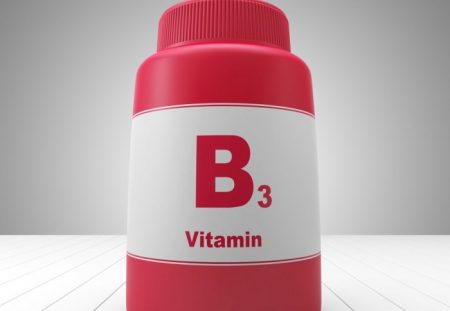NAD Precursor May Improve Cardiovascular Health
 NAD, or nicotinamide adenine dinucleotide, is found in all living cells. Its oxidized form, NAD+, rose in popularity as a nutritional supplement following a 2013 Harvard study that suggested it might slow aging in mice. A 2018 article by researcher Christopher R. Martens and colleagues in the journal Nature Communications reports that a precursor vitamin to NAD+ called nicotinamide riboside (NR) can stimulate NAD+ metabolism in healthy middle-aged and older adults compared to placebo, which might improve cardiovascular health. In the crossover study, participants received NR or placebo for six weeks, and then received the other option for a second six-week period. NR was associated with increased NAD+ metabolism.
NAD, or nicotinamide adenine dinucleotide, is found in all living cells. Its oxidized form, NAD+, rose in popularity as a nutritional supplement following a 2013 Harvard study that suggested it might slow aging in mice. A 2018 article by researcher Christopher R. Martens and colleagues in the journal Nature Communications reports that a precursor vitamin to NAD+ called nicotinamide riboside (NR) can stimulate NAD+ metabolism in healthy middle-aged and older adults compared to placebo, which might improve cardiovascular health. In the crossover study, participants received NR or placebo for six weeks, and then received the other option for a second six-week period. NR was associated with increased NAD+ metabolism.
The researchers suggest that more research is needed to investigate whether chronic NR supplementation might be able to reduce blood pressure and arterial stiffness.
NAD+ Supplements May Not Contain Much NAD+
NAD, or nicotinamide adenine dinucleotide, is found in all living cells. Its oxidized form, NAD+, has become popular as a nutritional supplement following a 2013 Harvard study that suggested it might slow aging in mice. However, commercially available NAD+ supplements may contain less than 100mg of NAD+, when ten times that amount would be required to produce any effect. NAD+ has not been tested in clinical trials.
Vitamin B3 is a better-tested alternative. A 2016 controlled clinical trial of a type of vitamin B3 called nicotinamide riboside (NR) found that this supplement was safe for humans and increased levels of NAD+. In the study by Samuel A.J. Trammell and colleagues in the journal Nature Communications, single doses of 100mg, 300mg, and 1000mg were all found to be safe. Larger doses increased NAD+ metabolism by greater amounts.
Check with your doctor before taking an NAD+ or vitamin B supplements.
Coenzyme NAD+ Postpones Aging in Mice and Worms
 Aging cells seem to lose their ability to repair DNA, while the mitochondria that power cells also become less reliable. A coenzyme called NAD+ may be able to postpone these changes. NAD+, which is found in all living cells, naturally decreases with age.
Aging cells seem to lose their ability to repair DNA, while the mitochondria that power cells also become less reliable. A coenzyme called NAD+ may be able to postpone these changes. NAD+, which is found in all living cells, naturally decreases with age.
A 2016 article by Evandro Fei Fang and colleagues in the journal Cell Metabolism reports that giving mice and roundworms supplemental NAD+ postponed cell aging and extended the lives of these animals.
The researchers hope this research might eventually help patients with Alzheimer’s and Parkinson’s’ diseases.


